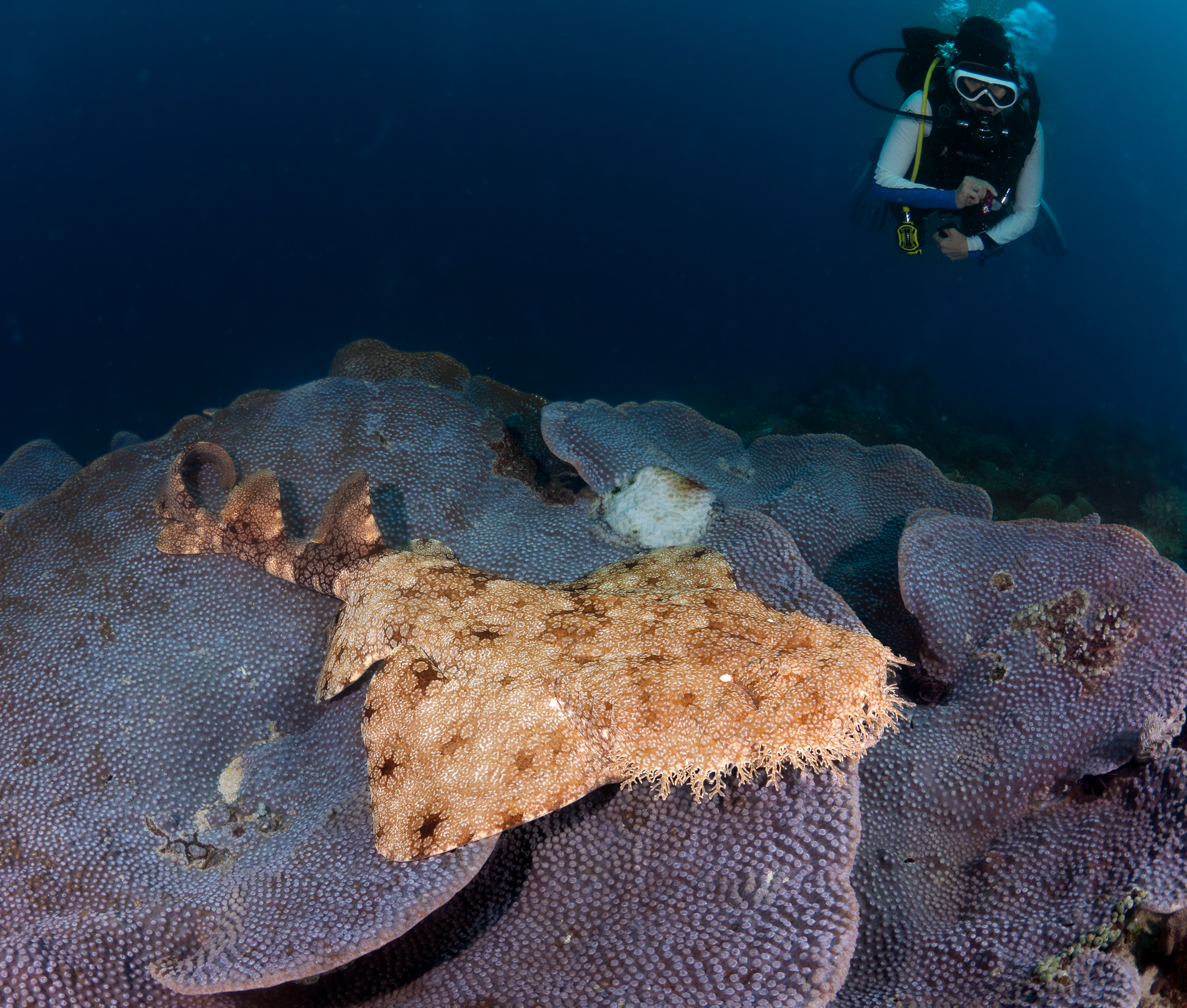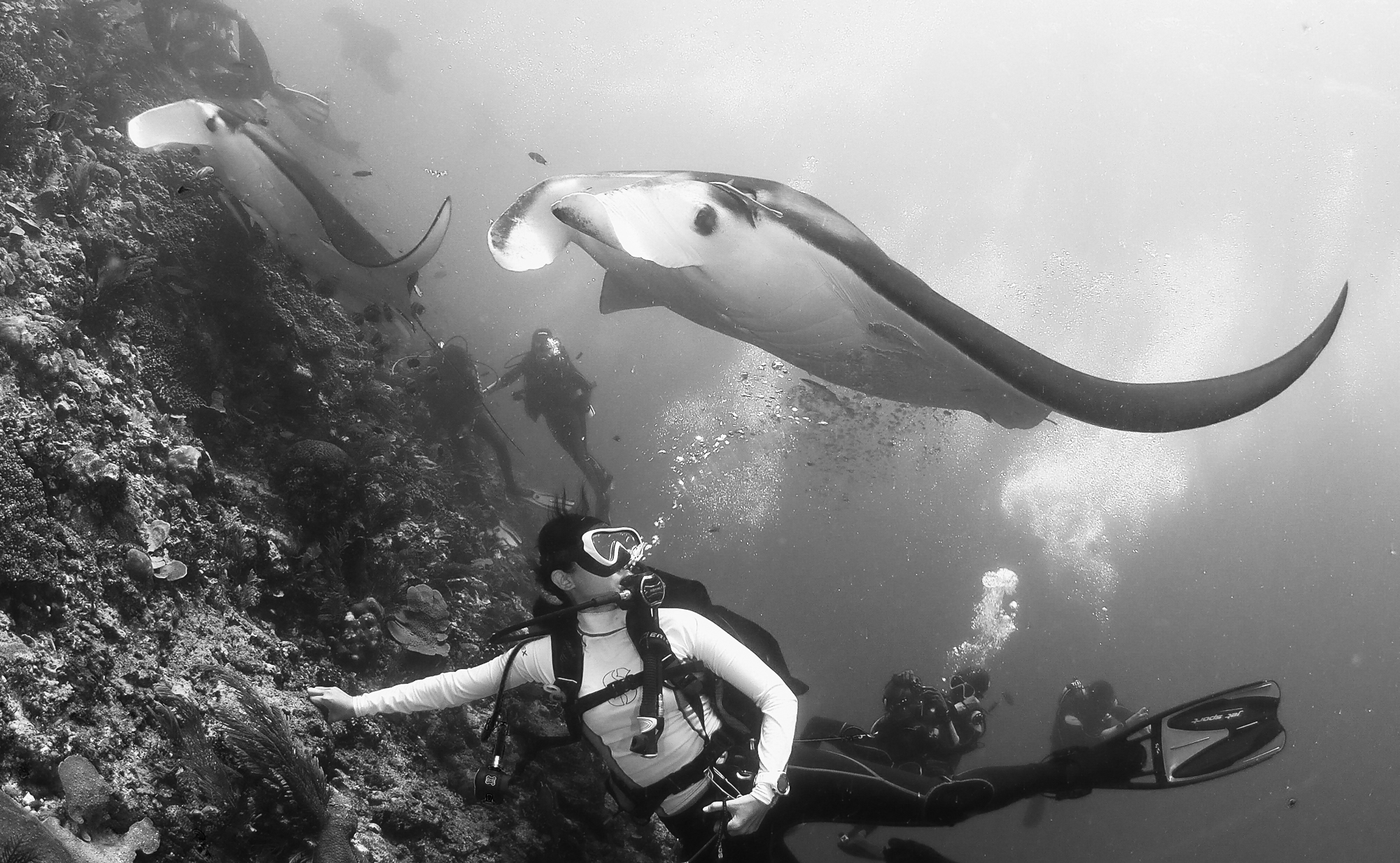Vandit Kalia, 9 February, 2026
A year ago, I had written an article titled "You Just Got Certified - Now What?", which had some suggestions for newer divers on what to do after certification. In this post, I'd like to get specific and talk about the one single thing that you, as a newly certified Open Water diver, can do to improve your dive skills
I have also created a short video on this subject, if you prefer that format.
But first, some context. As I have mentioned several times on this site, and will no doubt do so several times more in the future, dive agencies do not exist to make you a good/great diver. They exist to provide dive centers with a means of transferring liability from themselves onto the diver. Scuba training is a means to that end - it is taught to the minimum level of competence needed to achieve this.
And to be clear, this minimum level of competence does give most divers the ability to execute a dive from start to finish without significant issues - but the diver, at this stage, is very much a "work in progress", especially when it comes to buoyancy.
Think about it - after your 4 Open Water dives, you probably were able to execute the dive from start to finish, but were you able to glide effortless in the water? Did you find yourself flapping your hands if you stopping to look at some fish? Did you struggle with ascents and descents, or maybe even lost some buoyancy and float up, especially from the safety stop?
None of these problems are uncommon among newly certified divers - most of them are able to execute a dive safely, especially under the supervision of a divemaster, but their skills, especially buoyancy, need a lot more work.
And because you are not super smooth or comfortable in the water, you are probably lacking a little confidence about being down there as well. In fact, the vast majority of divers I know feel less confident about their ability to dive independently than is warranted based on their dive skills. And that lack of confidence means that they are stressed about diving, as opposed to having a blast underwater.
Now, let me put this in perspective - this is not an attack on dive agencies. They are not meant to be gatekeepers to the sport. And for divers who want to learn more, the agencies do provide a lot of additional training courses.
But the inarguable fact is that at the Open Water level, the fact is that there is a gap between the "minimum level of competency" that the course is taught to and the higher standard of excellence that you probably want to attain, given that you have landed on this article.
And addressing this gap will help new divers not only improve their physical skills, but also gain greater confidence in water.

At its core, diving is not that complicated. There are 5 main areas you need to learn;
- Equipment skills
- Mask skills
- Regulator skills
- Emergency skills
- Buoyancy skills
The first four of these areas have skills that I consider "binary" - in the sense that you can either perform them comfortably or you cannot. And in a properly taught course, most divers do attain an acceptable level of competence in these areas.
However, buoyancy is a spectrum, and various divers fall at different points along this. So that makes it very hard to define what level of buoyancy is acceptable for an Open Water course - and so the agencies set the bar at a level of competence which can roughly be defined as "good enough to not hurt yourself". That is NOT the same as good buoyancy, where you can swim effortlessly in the water and/or maintain your depth while staying motionless.
And honestly, there is a very good reason for this - one, as mentioned earlier, is that dive agencies are not meant to be gatekeepers to the sport that demand a certain level of excellence in order to allow people to dive. Second, developing good dive skills does take time in the water for the muscle memory to be imprinted on the diver, and it is left on the diver to continue their skill development as per their own preferences.
Now good instructors do make an effort to teach beyond the bare minimum, and develop good buoyancy skills.
But they are limited by the fact that a typical confined water program only has so much time in-water (usually 4-8 hours of actual in-water time), and that student divers come in varying levels of comfort in the water and with varying speeds at which they master the skills. And so, the priority is always given to creating a safe diver first, and then, if time remains, building upon this to achieve a higher level of competence in buoyancy.
Complicating things is the fact that even if the instructor had the time, a student who is doing his/her Confined Water course only can absorb so much in terms of buoyancy skills at this stage. They need the multiple hours of water time of the Open Water divers, spread over a few days, in order to build the basic muscle memory of how their body responds in the water.
The problem is, by the time they do so, the Open Water course is over! So what do you do now?

Very simple - as I mentioned, by the time you have finished the Open Water course, you have just acquired the basic skills needed to actually develop your buoyancy. So the next step is to actually go acquire this skills.
There are a few options on how you can do so - you can do a Buoyancy Specialty in the ocean. You can do an Advanced Open Water course, which has 5 dives with an instructor and typically, buoyancy is one of them. You can also just go diving.
I can personally vouch for that fact that each of these options will improve your buoyancy skills to varying degrees.
However, if there is one single best bang-for-your-buck thing that maximises the return/effort ratio, it is this: do a buoyancy class in a pool or in confined water.
Not the ocean. Diving in the ocean is a lot of fun, but between depth, air, currents, visibility, bottom profile and more, the amount of buoyancy teaching that can be done is limited to what was briefed before getting in the water.
In a pool or confined water, however, the effectiveness of the session increases significantly.
For starters, your session is longer - 2-3 hours, as opposed to 40-60 minutes on a dive. Second, you are not distracted by external factors. And most importantly, you can complete a set of drills, come up and get assigned another set of drills based on how you did, and repeat - ie, the training is a lot more flexible and custom-tailored to your needs.
And really, while I have called it a "buoyancy class", it's more of a 'finishing program' for divers, in the sense that you can also use this session to address any of your other core diving skills that you feel need improvement.
Of course, for this you will need an instructor who has the experience to adapt the training to your skill level and pace of learning, as opposed to one who blindly a fixed curriculum. And a pool with suitable depth for practicing your skills.
But the trade-offs are immense - this one session will improve your buoyancy and comfort in the water - and that, in turn, also improves your overall confidence in the water significantly. And for most newly minted divers, this is exactly the area that needs improvement!

